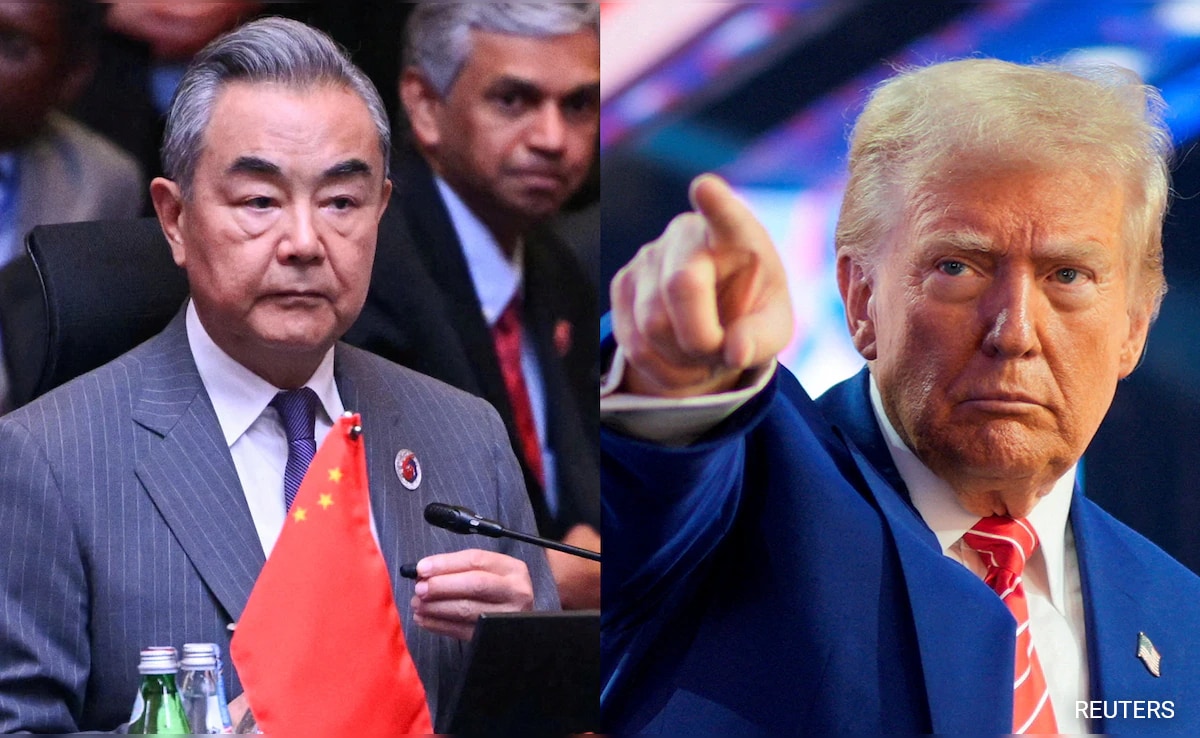The International Memorial Society, known as Memorial, was set up by dissidents â including renowned Nobel peace laureate Andrei Sakharov â during the final years of the Soviet Union. It is focused on researching Soviet abuses in the gulag, a vast web of prison camps where political prisoners toiled and died, many of them executed on the basis of concocted evidence.
It also has an archive of the case files of more than 60,000 Soviet victims of state repression â a sensitive issue as Russia rolls back rights and jails critics for protesting, or even for joking about the regime.
Prosecutors accused the International Memorial Society of violating Russiaâs law on foreign agents, which is used by authorities to target rights groups, independent journalists and activists. The court accepted the prosecutorâs call to liquidate Memorial for failing to tag all its materials with a foreign agent label, and ruled that the organization and all its regional and structural units would be abolished.
The organization countered that it had made strenuous efforts to meet the many requirements of the law. Memorial lawyer Grigory Vaipan said it was the first prosecution in Russia that sought to abolish an organization based solely on breaches to the law on foreign agents.
After the decision, Memorial supporters chanted âShame!â outside the court. Police earlier arrested several Memorial supporters at the court who held up posters, such as âWe are Memorialâ and âHands Off Memorial.â They also detained a few Memorial opponents with posters portraying the group as Nazis.
The organizationâs human rights wing, Memorial Human Rights Center, faces a similar court hearing Wednesday, when it faces charges of justifying terrorism and extremism, a case that could also see it liquidated. The center focuses on contemporary human rights abuses, releasing a tally of the 419 political prisoners jailed in Russia several months ago, and helping more than 1500 Russians take their cases to the European Court of Human Rights in Strasbourg for rights abuses by Russian authorities.
President Vladimir Putin has taken a sharp authoritarian turn since engineering constitutional changes in 2020 to allow him to stay in power potentially until 2036. Authorities have targeted critics, declaring them to be foreign agents, undesirable organizations or extremists.
State agents poisoned the countryâs leading opposition figure Alexei Navalny last year using a banned chemical weapon, according to the U.S. State Department. The authorities jailed him in February, designated his organizations as extremist in June and barred his associates from running for office.
The court decision on Memorial sets an ominous precedent for dozens of other organizations designated as foreign agents by Russian authorities.
It also raises questions about the fate of Memorialâs archive recording the personal files of 60,000 victims of Soviet repression, its searchable database containing three million names of victims, and its database with the names of nearly 42,000 people who worked for the Soviet secret police from 1935-39, when repressions peaked.
The archive is seen by activists as an irreplaceable record of the crimes of the Soviet state against millions of its citizens. Memorialâs own lawyers have said the group raises uncomfortable questions for a regime increasingly bent on legal repressions of critics.
Prosecutor Alexei Zhafyarov said Tuesday that the International Memorial Society focused on âdistorting historyâ particularly about the Soviet record during the Great Patriotic War, as World War II is called in Russia. He asserted that the group worked at the behest of foreigners to create a false image of the Soviet Union as a âterrorist state.â
âIt is obvious that, by cashing in on the subject of political reprisals of the 20th century, Memorial is mendaciously portraying the USSR as a terrorist state and whitewashing and vindicating Nazi criminals having blood of Soviet citizens on their hands,â Zhafyarov said.
However, Vaipan, Memorialâs advocate, said the real violator was not Memorial but the Russian state for its law on foreign agents.
Another Memorial advocate Maria Eismont, said the organization was dedicated to fighting for openness of information, yet was accused by prosecutors of hiding the truth. She quoted George Orwellâs dystopian novel â1984â to describe the prosecutionâs case, saying: âWar is peace. Freedom is slavery. Ignorance is strength.â
âThe liquidation of the International Memorial Society will throw the country backwards and increase the risk of all-out repression,â she added.
Global rights organizations such as Amnesty International have said Russiaâs move against the organization showed the regimeâs determination to obliterate the memory of the repressions carried out by Soviet authorities.
Western diplomats also condemned Russiaâs action against the International Memorial Society and Memorial Human Rights Center earlier. The European Parliament adopted a resolution Dec. 15 condemning what it called Russiaâs politically motivated attempt to liquidate the two organizations.
On Monday, a Russian court increased the sentence of Yuri Dmitriyev, Memorialâs local head in Karelia, north-western Russia, from 13 years to 15 years, after he was convicted of child pornography in a case that he says was fabricated for political reasons. Dmitriyev, a historian, played a key role in the investigation of a mass grave in Sandarmokh where at least 6000 corpses were buried, victims of Stalin-era executions in 1937 and 1938.
Russian authorities also blocked the website of OVD-Info Monday, a rights group that provides legal support to regime critics who are arrested.
Kremlin spokesman Dmitry Peskov said Monday that there was no trend in Russia to prohibit human rights groups.
"Yes, these are individual situations. Some are less high-profile from a public viewpoint, some are more high-profile, but we donât believe itâs some kind of a mass tendency. We donât see any tendencies here.â
Read more:
.png)











 English (United States) ·
English (United States) ·  Turkish (Turkey) ·
Turkish (Turkey) ·